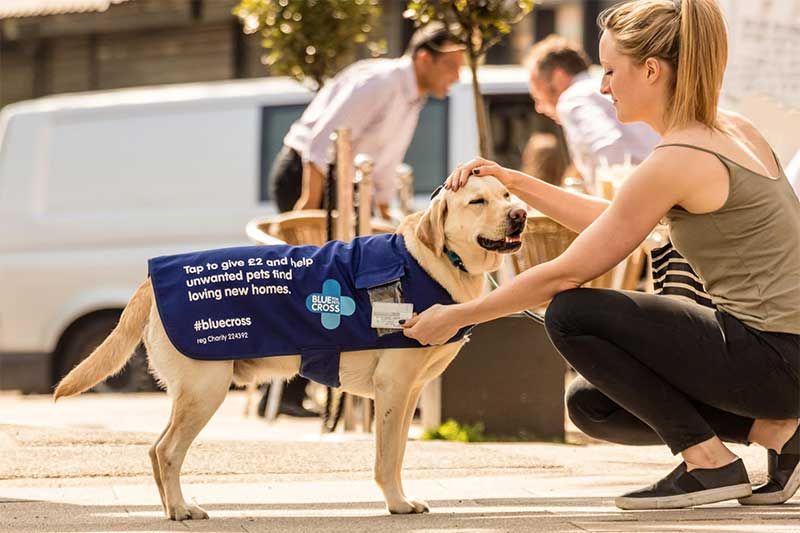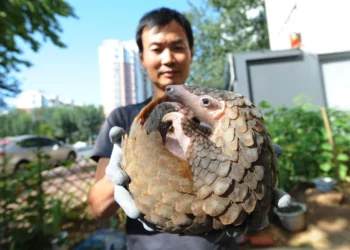Pet rescue organizations play a pivotal role in safeguarding the well-being of animals in our communities. These organizations are dedicated to rescuing, rehabilitating, and rehoming animals in need, providing them with a second chance at life.
Within this context, this article explores the remarkable impact that college students have when they choose to engage with pet rescue organizations. Their involvement, driven by passion and a desire for positive change, has far-reaching consequences for both animals and the individuals themselves.
The impact of college students’ involvement in pet rescue organizations extends far beyond academic pursuits, enriching their personal development and fostering a more compassionate society—a theme that resonates deeply even with those seeking assistance from a college essay writing service at Academized.
The involvement of college students in pet rescue organizations holds profound significance on multiple fronts. Firstly, it addresses a pressing societal issue—the welfare of animals in need. College campuses often serve as hotbeds of enthusiasm, idealism, and energy, making them fertile ground for recruiting passionate advocates for animal welfare. Secondly, college students bring unique perspectives, talents, and skills to the table.
Their participation not only enhances the operational capacity of these organizations but also catalyzes personal development and fosters a lifelong commitment to the welfare of animals. In a broader context, their involvement contributes to building a more compassionate and conscientious society, where the voices of those who cannot speak for themselves are heard and acted upon.
The Role of Pet Rescue Organizations
Pet rescue organizations, often referred to as animal shelters or rescues, are non-profit entities dedicated to the rescue, care, and rehoming of animals in need. They serve as safe havens for abandoned, abused, and homeless animals, offering them shelter, medical care, and the chance to find loving homes. These organizations operate with the core mission of alleviating animal suffering and promoting responsible pet ownership.
The profound impact of college students’ involvement in pet rescue organizations on both animal welfare and personal growth underscores the transformative potential of such engagement, a narrative that extends beyond academic disciplines and even resonates with those seeking assistance from history essay writing services.
The work of pet rescue organizations is instrumental in addressing critical animal welfare issues. They provide a crucial safety net for animals facing neglect, cruelty, or abandonment. By rescuing and rehabilitating animals, these organizations contribute to reducing pet overpopulation, preventing euthanasia, and fostering a culture of compassion toward animals.
The impact of pet rescue extends beyond the animals themselves. These organizations play an integral role in building stronger, more compassionate communities. Through adoption events, education programs, and community outreach, pet rescues not only save animals but also promote responsible pet ownership and humane treatment of animals.
Additionally, they alleviate the burden on local animal control agencies and taxpayers by taking in and caring for animals that might otherwise strain limited resources.
College Students’ Involvement in Pet Rescue Organizations
Many college students are deeply passionate about animals and are driven by a profound love and empathy for them. This intrinsic motivation often fuels their desire to get involved with pet rescue organizations.
College campuses provide a unique opportunity for students to engage with their communities. Joining pet rescue organizations allows them to actively contribute to a cause they care about while fostering a sense of belonging and purpose.
For some students, involvement in pet rescue is a pathway to developing valuable skills that are transferable to future careers in veterinary medicine, animal welfare, or non-profit management. They see these organizations as platforms for hands-on learning and experience.
College students often volunteer their time at pet rescue organizations, assisting with tasks such as animal care, cleaning, and socialization. Their energy and enthusiasm are invaluable in maintaining the day-to-day operations of these organizations.
Students bring fresh perspectives and innovative ideas to fundraising and awareness initiatives. They organize events, leverage social media, and tap into their networks to raise funds and increase public awareness about the plight of animals in need.
Many students open their homes to foster animals, providing them with love and temporary shelter. They also play a crucial role in connecting potential adopters with the right pets, facilitating successful adoptions.
Benefits of College Students’ Involvement
College students who engage with pet rescue organizations often find themselves in leadership roles, whether as team leaders during volunteer events or coordinators of fundraising campaigns. This experience fosters leadership skills such as decision-making, delegation, and effective communication. These skills are transferable to various aspects of life and future careers.
Working closely with animals in need and witnessing their stories of resilience can profoundly enhance a student’s capacity for compassion and empathy. Understanding the unique needs and emotions of animals not only improves their interactions with animals but also translates into more empathetic human relationships.

Pet rescue work frequently presents challenges that require creative problem-solving. Students learn to adapt to unexpected situations, think on their feet, and find solutions to complex issues. These problem-solving abilities are valuable in academia, careers, and everyday life.
The act of caring for animals and contributing to their well-being has been shown to reduce stress levels in college students. Spending time with animals can provide a welcome respite from the academic pressures and daily stressors that students often face. The unconditional love and companionship offered by animals can be a source of comfort and stress relief.
Involvement in pet rescue organizations gives students a sense of purpose beyond their academic pursuits. Knowing that their efforts directly improve the lives of animals in need provides a profound sense of fulfillment. This sense of purpose can help combat feelings of academic stress or uncertainty about the future.
College students actively contribute to reducing pet overpopulation by advocating for responsible pet ownership and supporting spaying and neutering initiatives. Their efforts help curb the number of animals entering shelters, ultimately reducing the need for euthanasia due to overcrowding.
Through their volunteer work and outreach efforts, college students increase awareness about adoptable animals and promote the benefits of adopting from shelters and rescues. Their efforts directly lead to higher adoption rates, ensuring that more animals find loving forever homes.
College students, by participating in pet rescue activities, contribute to the creation of a more compassionate and humane society. Their advocacy for animal welfare raises awareness about the importance of treating animals with kindness and respect, influencing not only their peers but also the broader community to adopt more humane attitudes and behaviors towards animals.
Challenges and Considerations
Balancing the rigorous demands of academic coursework with volunteer commitments can be a significant challenge for college students. Managing time effectively and prioritizing responsibilities becomes crucial to prevent academic performance from being negatively impacted.
Working with animals in distress can be emotionally taxing. College student volunteers may encounter heartbreaking situations that can lead to compassion fatigue or burnout. Addressing emotional well-being and providing mental health resources is essential to support their resilience.
Ensuring the ethical treatment of animals within pet rescue organizations is paramount. College students should be educated on animal welfare standards, and organizations must have clear policies and procedures in place to guarantee the humane treatment of animals.
Comprehensive training and ongoing support are essential for student volunteers. Organizations should provide training on animal care, safety protocols, and emotional support, equipping students with the knowledge and tools they need to excel in their roles.
Strategies for Encouraging College Student Involvement
Establishing partnerships between colleges and local pet rescue organizations can facilitate student involvement. These partnerships can include opportunities for on-campus events, internships, and educational programs that promote animal welfare.
Encouraging the formation of student-led pet rescue clubs or organizations on campuses empowers students to take the initiative in promoting animal welfare. These groups can organize events, fundraisers, and volunteer opportunities specific to their university community.
Incentives such as scholarships, awards, or course credits for volunteering can motivate students to get involved. Recognizing their contributions through public acknowledgment and appreciation events can also foster a sense of belonging and pride.
Educational campaigns that highlight the personal and societal benefits of involvement in pet rescue organizations can inspire more students to participate. Outreach efforts should emphasize how their contributions positively impact animals, communities, and their own personal development.
Conclusion
College students’ involvement in pet rescue organizations offers numerous benefits, from personal growth and skill enhancement to positive effects on mental health and the broader community. However, it’s essential to acknowledge and address the challenges they may encounter while volunteering. By implementing strategies to encourage involvement and providing adequate support, colleges and pet rescue organizations can harness the potential of students to create a more compassionate and humane society.








